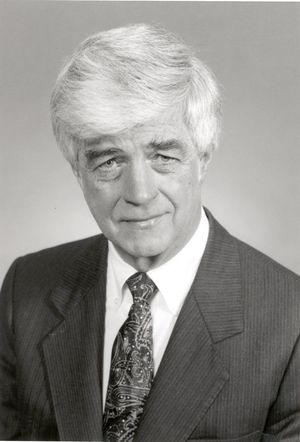James Thomas Cain
J. Thomas Cain, IEEE President, 1995, worked with many different companies such as GE, Westinghouse, and Bell Telephone Company. He later became a professor at the University of Pittsburgh.
Biography
James Thomas (Tom) Cain has had an extraordinary impact on the quality of the practice of electrical and computer engineering through his contributions and leadership in engineering education. During his forty-one years of service as a faculty member at the University of Pittsburgh and as a volunteer, Dr. Cain has had a major role in creating accreditation programs to establish standards in the U.S. and abroad. He led the effort to establish the Computing Sciences Accreditation Board (CSAB). CSAB later merged with ABET and there are now more than 250 accredited programs in the computing sciences. He also has worked to expand accreditation internationally, establishing a series of accreditation workshops in South America, Central America and Europe and helping to form the Instituto de Calidad y Acreditacion de Careeras Profesionales de Ingenieria y Tecnologia (ICACIT), the Peruvian accreditation body for engineering and technology programs and the National Board of Accreditation in India.
He contributed to and provided leadership to the development of the first Model Curricula in Computer Science and Engineering in 1977 and the revisions in 1984 and 1991.
An IEEE Life Fellow, Dr. Cain was a leader in the first efforts to apply computerized technology to the manuscript production process and continued to push to move the IEEE ahead in the electronic delivery of technical materials. As IEEE President in 1995, he transitioned the in-house publication capability from CD-based systems to Internet-based systems, which led to the development of IEEE Xplore, one of the largest and most important technology databases in the world.
Cain has received many awards including the Distinguished Alumnus Award from the Department of Electrical Engineering, at the University of Pittsburgh, the IEEE Millennium Medal for “Continuous and Outstanding Service to the Profession,” and the CSAB Fellow for “Leadership in Computer Science Accreditation.” His research has been supported by the National Science Foundation.
